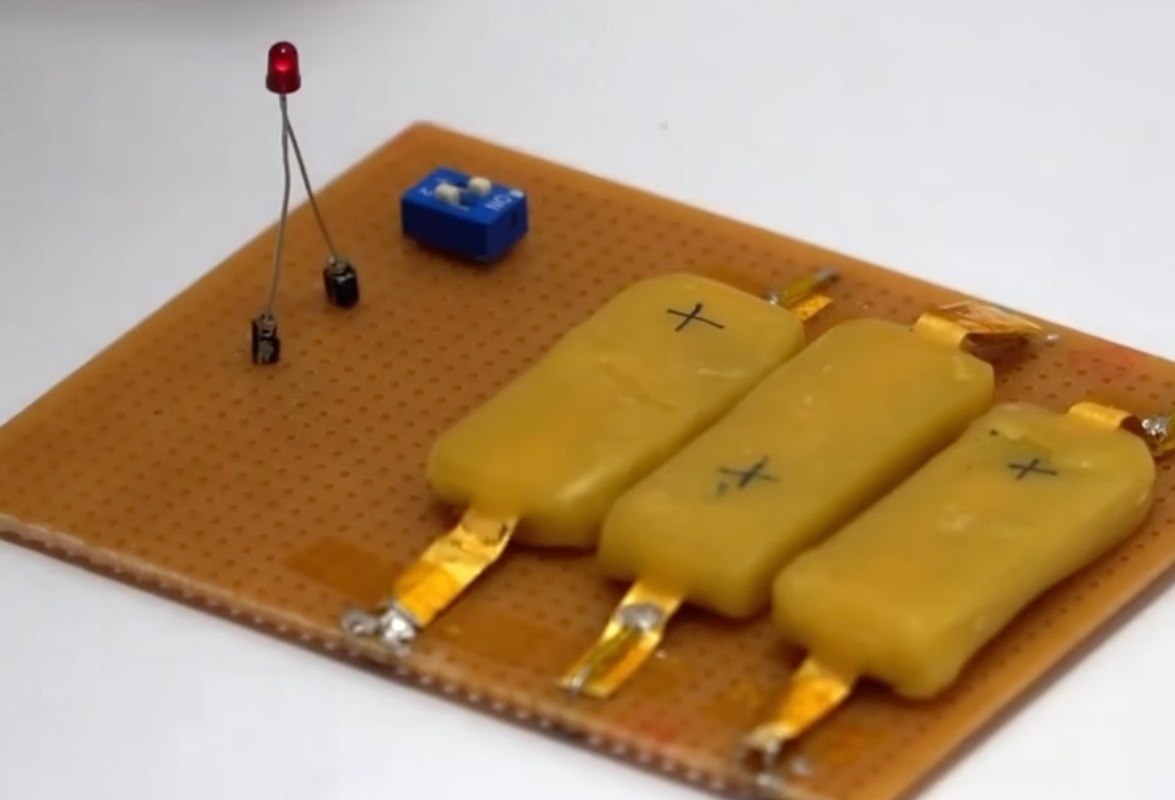Food is what fuels us as human beings, but pretty soon, it could be what's energizing our electronic devices.
Researchers from the Italian Institute of Technology have developed the world's first rechargeable battery made with food products, making it completely edible. That distinctive characteristic allows the possibility for it to be used in internal gastrointestinal diagnostic instruments, food quality monitoring, and edible soft robotics.
"Future potential uses range from edible circuits and sensors that can monitor health conditions to the powering of sensors for monitoring food storage conditions," Mario Caironi, coordinator of the Printed and Molecular Electronics laboratory of the IIT Center in Milan and lead researcher, said in a press release.
The scientists, influenced by the biochemical reactions occurring in all living beings, used riboflavin (vitamin B2) as the anode and the plant flavonoid quercetin as the cathode. The former is present in almonds, dairy products, and meats, while the latter is found in capers, citrus fruits, and leafy greens.
The research group also utilized activated charcoal and a water-based electrolyte to improve electrical conductivity, nori, a type of roasted seaweed, as the separator to prevent short circuits, and food-grade gold foil for the beeswax-covered electrodes.
The complete unit operates at 0.65 volts and produces 48 microamperes for 12 minutes, which means it is safe for humans to ingest but can still provide enough energy for low-power LEDs.
"Given the level of safety of these batteries, they could be used in children's toys, where there is a high risk of ingestion," Caironi said.
The battery's rechargeability adds to its potential benefits and eco-friendliness, as the research paper stated that this feature "allows them to be reused when the application permits (e.g., food monitoring), thereby significantly reducing waste."
Furthermore, the team believes they can make the edible battery small enough to fit in a pill. Caironi noted they are "already developing devices with greater capacity and reducing the overall size."
"This edible battery is also very interesting for the energy storage community," study coauthor Ivan Ilic added. "Building safer batteries, without usage of toxic materials, is a challenge we face as battery demand soars."
"While our edible batteries won't power electric cars, they are a proof that batteries can be made from safer materials than current Li-ion batteries. We believe they will inspire other scientists to build safer batteries for a truly sustainable future," he continued.
Join our free newsletter for weekly updates on the coolest innovations improving our lives and saving our planet.









